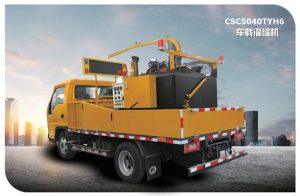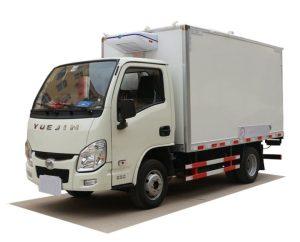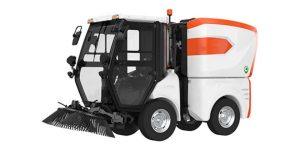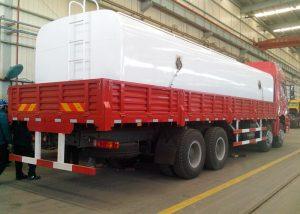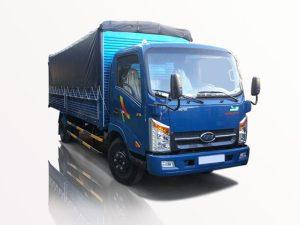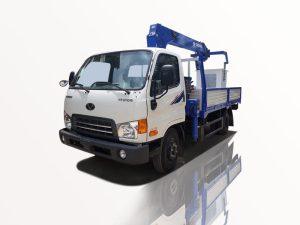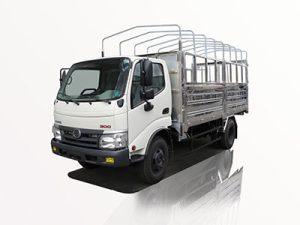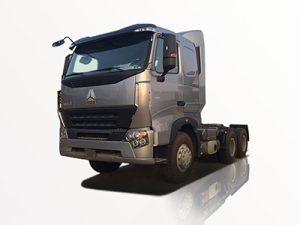Monday to Saturday - 8:00 -17:30
Mini Garbage Truck for Sale: Your Ultimate Guide
In today’s world, waste management has become a crucial aspect of maintaining cleanliness and sustainability in both urban and rural areas. Mini garbage trucks are increasingly popular due to their versatility, efficiency, and compact design. Whether for commercial use or personal projects, understanding the benefits and available options for mini garbage trucks is essential. This comprehensive guide will explore everything you need to know about mini garbage trucks for sale, including their features, types, buying tips, and more.
What is a Mini Garbage Truck?
A mini garbage truck is a smaller, more maneuverable version of traditional garbage collection vehicles. Designed to handle solid waste, recycling, and landscaping debris, these trucks are ideal for tight spaces and urban areas. Their compact size allows them to navigate narrow streets, alleys, and crowded environments with ease.
Benefits of Using Mini Garbage Trucks
1. Maneuverability
One of the most significant advantages of mini garbage trucks is their ability to access hard-to-reach areas. Whether it’s an industrial complex or a residential neighborhood, these trucks can fit into tighter spaces where larger vehicles simply cannot.
2. Fuel Efficiency
Mini garbage trucks typically possess smaller engines, which often translates to better fuel efficiency. Businesses and municipalities can save money on fuel costs over time.
3. Versatility
These trucks are versatile and can be used for various purposes, including waste collection, landscaping debris removal, and even snow plowing in winter months.
4. Cost-Effectiveness
Generally, mini garbage trucks tend to be less expensive than their larger counterparts, both in terms of initial purchase price and ongoing maintenance.
Types of Mini Garbage Trucks
1. Dump Trucks
Mini dump trucks are designed to transport and unload waste easily. Their hydraulic dump feature allows for quick unloading at disposal sites.
2. Rear-Loader Trucks
These trucks have a rear loading feature and are ideal for narrow streets. They often come with specialized compactors to manage waste effectively.
3. Side-Loader Trucks
Side-loaders are designed to collect waste from the side, making them suitable for areas where space is limited. This type is popular in residential neighborhoods.
4. Electric Mini Garbage Trucks
As sustainability becomes an increasing focus, electric mini garbage trucks are gaining popularity. They produce no emissions, making them environmentally friendly alternatives.
Factors to Consider When Buying a Mini Garbage Truck
1. Size and Capacity
Understanding the expected load capacity is essential. Choose a truck that can handle your specific waste management needs without requiring multiple trips.
2. Type of Operation
Will the truck primarily be for residential or commercial use? Understanding the primary use can help you choose the right type of mini garbage truck.
3. Budget
Determine your budget before you start shopping. Consider not just the purchase price but also maintenance and operational costs.
4. Brand and Model
Research brands and models that are well-reviewed. Popular brands often have better warranties and customer support options.
Where to Find Mini Garbage Trucks for Sale
1. Online Marketplaces
Websites like eBay, Craigslist, and specialized truck sales platforms often have listings for new and used mini garbage trucks. Search filters allow you to find models within your area easily.
2. Dealerships
Visiting local dealerships can provide hands-on experience with various models. Dealerships may also offer financing options and after-sales services.
3. Auctions
Government and municipal auctions can be a great place to find quality mini garbage trucks at reduced prices. Keep an eye on local auction schedules.
Tips for Buying a Mini Garbage Truck
1. Conduct Inspections
Always inspect a used mini garbage truck before purchase. Look for signs of wear and tear, and check maintenance records if possible.
2. Test Drive
If applicable, always test drive the vehicle. Assess how it handles, brakes, and performs under load.
3. Check for Warranty
Buying a truck with a warranty can provide peace of mind. Ensure you understand what the warranty covers and for how long.
4. Consider Financing Options
If your budget is tight, explore financing options. Many dealerships offer financing plans that can help manage payments effectively.
Common Maintenance Tips for Mini Garbage Trucks
1. Regular Check-Ups
Schedule regular check-ups to ensure all parts are functioning efficiently. Focus on brakes, tires, and hydraulic systems.
2. Keep it Clean
Maintaining cleanliness both inside and outside the truck can prevent damage and enhance its lifespan.
3. Change Fluids
Regularly check and change the oil and other fluids. Proper lubrication can prevent wear and tear on critical engine components.
4. Inspect Tires
Regularly check tire pressure and tread depth. Properly inflated tires improve fuel efficiency and handling.
FAQs about Mini Garbage Trucks
1. Are mini garbage trucks suitable for residential use?
Yes, mini garbage trucks are ideal for residential waste collection, particularly in neighborhoods with narrow streets.
2. How much can a mini garbage truck carry?
The loading capacity of mini garbage trucks varies widely, from around 1 to 6 tons, depending on the model.
3. What is the average price range for a mini garbage truck?
Prices can range from $15,000 to $60,000, depending on factors such as brand, age, and specifications.
4. What types of waste can mini garbage trucks handle?
They can handle general waste, recycling materials, landscaping debris, and in some cases, hazardous materials, depending on the truck’s design.
5. How do electric mini garbage trucks perform compared to traditional ones?
Electric mini garbage trucks generally offer lower operating costs and are environmentally friendly, but they may have shorter ranges between recharges.
6. Is financing available for purchasing mini garbage trucks?
Yes, many dealerships offer financing options. It’s advisable to compare rates and terms from various lenders before making a decision.


